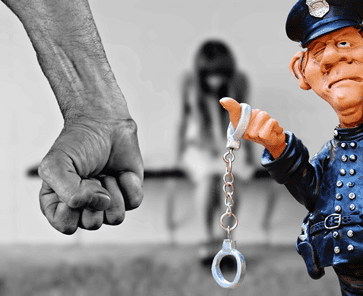SC Divorce Plan

Planning Your Divorce in South Carolina
Divorce can come about quickly or slowly, in some cases, very slowly. Whether your divorce is preceded by a traumatic event such as discovering your spouse is cheating, or slowly when something makes you realize the love, affection, and mutual support that made you fall in love are gone and have not been seen in a long time, planning before you take action can help you recover and move on with your life.
Planning for divorce in South Carolina involves walking a line that keeps you inside the law even though it may be tempting to do otherwise. There are plenty of actions you can legally take to increase your chances of achieving the best possible outcome.
What Not to Do
Attempt to Hide Assets and Income
Don’t hide your assets. First of all, hiding your assets during a divorce is illegal. Secondly, forensic accounting and other methods of finding your assets will probably determine that you attempted to hide your assets. Even if they don’t find all your assets, South Carolina judges have discretion in how they distribute property and award alimony. Attempting to hide your assets is likely to put the judge firmly on your spouse’s side when those decisions are made. Rule # 1 – Be Honest

Health and Dental Benefits
Do not remove your spouse from your health insurance or dental benefits at work until you have a court order. An executive who vindictively removed his wife from the group health insurance plan prematurely had to pay an additional $19,000 for medical bills she incurred when she should have had coverage under the group plan. The payment he was required to pay was not offset against her share of the property settlement. The husband had to pay what the insurance company would have paid if he had not removed her coverage without permission from the court.
Rule #2 – Don’t act vindictively

Words Matter
Tempers are often heightened and words that we later regret are spilled in anger during the time leading up to a divorce. This can include incriminating and abusive words. South Carolina §17-30-30 allows you or your spouse to record conversations between the two of you without the other’s consent. Since South Carolina has two types of divorce and a divorce based on fault can affect property settlement and alimony, be careful what you say. If you are recorded by your soon-to-be ex-spouse admitting to 1) adultery; 2) physical cruelty; or 3) habitual intoxication from alcohol or narcotics, it provides the proof required for an at-fault divorce, even if you are lying. If your spouse was unfaithful and you lie to hurt your spouse and admit an affair that never happened, it can be used to claim that you committed adultery.
Rule # 3 – Know what to say and watch your words; don’t say anything you don’t want the judge to hear.

Know the Law—Follow the Law
You cannot record conversations if you are not a party to the conversation in South Carolina. Do not illegally record conversations and submit them as evidence in your divorce. Illegally recording conversations in South Carolina is a felony.
Slanderous statements and character assignations may make us feel better when the spouse we are divorcing has us feeling powerless against them or their actions. However, making public comments, on social media or elsewhere, can come back to bite us. There are laws that dictate what we can and cannot say. While they are seldom used, the risk always exists.
Also, if your words interfere with your former spouse’s ability to earn an income and you have minor children or expectations of receiving alimony, you could be taking money out of your own pocket. They can’t pay what they don’t make.
Rule # 4 – Consult your attorney and know where the legal lines are drawn

Use Discretion
Do not post things on social media that you do not want the judge to see. Social media accounts and text messages can be subpoenaed. If you wouldn’t want the judge to see it, or you don’t want it to be part of the public records associated with your divorce proceedings, don’t say it or type it.
Rule # 5 – As Grandma used to say, “Don’t air your dirty laundry in public.”
Do not have an intimate relationship with anyone else until your divorce is final. Adultery can make you ineligible for alimony and it can make you eligible for up to six months in jail. South Carolina has “at-fault” and “no fault” divorces. When you’re at-fault, it can cost you in court.
Rule # 6 – It’s still cheating until the divorce is final in South Carolina

Don’t move out of your home until you speak to your lawyer
If you or your children are in danger, get out immediately, or as soon as it is safe. There are safe houses you can go to. If you are not in danger, talk with your attorney before moving out of the family home. Moving can affect your rights.
Rule # 7 – Understand the implications before you act
What to Do
Gather incriminating evidence
If your spouse verbalizes grounds for an at-fault divorce, you can record the conversation if you are a party to it and use it for the evidence required for an at-fault divorce. One woman was married to an abusive man who used sex workers and then told her what he’d done as a form of psychological abuse. His words were used to prove his adulterous behavior.
Rule # 1 – Get the evidence before you file for divorce, if possible
Document assets and income
Now You See It, Now You Don’t.
Gather evidence of assets and income before your spouse knows you are going to seek a divorce. The creativity some people use to make assets and income disappear is amazing. It may be wise to consult with an attorney and file for divorce before you tell your spouse you are seeking a divorce. Your attorney can include restrictions on moving or selling assets to protect your interests. Angry people often act impulsively, taking vindictive actions that have adverse financial implications. One woman bought a BMW at .20 cents on the dollar from a woman who sold it because she didn’t want her husband to get it in the divorce. While the court may take the lost value from the party who acted rashly and imprudently, there is no guarantee that you will be made whole. If there is a court order restraining the sale of assets you have more protection.
Rule # 2 — Once you have the evidence of assets and income, store it where it is safe. Photographs help.

Document Your Relationship with Your Children
Minor often become the focus of a divorcing couples fights. If you read to your child when you put them to bed at night, record evidence of it—especially if your spouse is their primary care giver. If you have time to plan and you haven’t been as involved as you intended in your children’s lives, begin being more involved. Attend parent teacher conferences, school plays, dance recitals, ball games, and other events to show you are an interested and involved parent.
Life moves fast and it is easy to miss the opportunity to be an involved parent. Songs like Harry Chapin’s Cats in the Cradle stand the test of time because it is all too easy to focus our energy on our career, especially if our spouse is a good mother or father. If you head into a divorce in that situation, you may lose the chance to be the parent you wanted to be and the opportunity to have the relationship you wanted with your children. Actions, not intentions, will be considered when custody arrangements are decided.
Only do this if you want a closer relationship with your children. Do not do it to spite your spouse because you will hurt your children in the process if your interest and attention wanes after the divorce.
Rule # 3 – Be the parent you want to be before you get divorced.

Get counseling
Counseling can have two very different goals.
Counseling can be helpful in achieving reconciliation and returning the marriage to something both partners value and want to maintain. The human mind is an interesting thing. When we are unhappy, our mind makes it difficult to see the good in ourselves, our partner, and our marriage. When we feel better, sometimes we can’t even remember why we were so angry. We remember being angry and upset, but can’t return to that state without effort. Sometimes marriages collapse because one or both partners have developed habits of thought that tear the marriage apart. Habits of thought can be changed and doing so is much easier than ending a marriage and starting over.
Some marriages shouldn’t be saved.
- No one should stay in a dangerous or abusive situation.
- If the marriage was entered into with a major misrepresentation, such as a marrying someone of the opposite gender when the person is only attracted to someone of the same gender, or when the marriage was sought purely for an advantage it provided such as wealth or influence and the tender feelings the other person thought existed were faked. Those types of marriage are often psychologically damaging.
- When one spouse is involved in illegal activities that put the spouse and/or children in danger because of the proximity to the person committing criminal acts.
- When one party is habitually intoxicated and has no intention, or desire, to change their behavior.
The above isn’t an exhaustive list—there are countless other scenarios that are best resolved through divorce.
Counseling to help you move on can be very beneficial. The amount of emotional suffering someone experiences during and after a divorce varies greatly from person-to-person. Self-compassion and counseling are two methods that are proven to reduce the suffering. Divorces aren’t fun but they can be easier with the aid of a counselor. If the marriage was abusive, you and your children should seek counseling.
Rule # 4 – Self-care is important. Do it.

Budgeting
Nearly every aspect of your financial life is subject to change during a divorce. Often, people stay in a miserable marriage because they don’t think they can afford to leave. Understanding how a divorce will affect your finances now, and in the future, is important. Once you know what your income will look like after the divorce, you can make decisions about living arrangements.
- You may receive or have to pay alimony.
- You may receive or have to pay child support.
- You may have to move and/or sell your home.
- Review your prenuptial agreement.
Estimate what you may have to pay, or what you are likely to receive, in alimony and child support payments in South Carolina. Explore options because decisions you make now will affect your finances for many years.
Create a budget that helps you decide important question such as whether you will move or attempt to keep the family home. If one of you are relocating, be sure to consider travel expenses for visitation.
Rule # 5 – Understand your new financial situation
Be Safe

Divorce can be a dangerous time. Abusive spouses are more likely to seriously injure or kill a spouse when the relationship is ending than at any other time. While a restraining order makes it more illegal for an abuser to harm you because it forbids them from being in close proximity to you, it isn’t foolproof. If you need to go to a safe house or live where your spouse doesn’t know your location, do it. Protect yourself.
There are two other angles to being safe. One is to do your best not to agitate someone who has been abusive in the past. Standing up for your rights and seek property and income you are entitled to, but do it as kindly as you can—don’t do things that you know will rile your spouse. Abuse is not your fault but abuse victims often do or say things that agitate the other person which increases their risk of injury or death. If you know the person is potentially dangerous, use caution. When this is difficult, remind yourself that you are escaping; the abuser still has to live with him or herself. Do your best to avoid being alone with an abusive partner. You may also want to change your routines.

The last caution is to the potential abuser. If you know from experience that you have a tendency to act now and regret later, make it more difficult for you to do that. If you have guns, ask someone who is legally allowed to have guns and who will not give them back when you are upset to hold them for you until you get through this period of your life. This same advice goes for anyone who is feeling deeply depressed by a divorce (or at any time). If alcohol or drugs contribute to your bad behaviors, attempt to avoid them and if you can’t resist, ask someone to hold your keys so you don’t have an easy way to get to your estranged spouse. Revenge may sound nice but it won’t feel nice when you’re in an 8 x 10 cell.
Rule # 6 – Plan ahead to prevent problems
Pack and Plan before You Move
If you know ahead of time that you are going to leave or ask your spouse to leave, there are things you can do to make it easier when the time comes. If you’ve been married most of your adult life, some of these things won’t apply. If you haven’t been married that long or you married later in life, your home is a mixture of things that belonged to each of you before you were married. You can begin subtly separating these. For example, when you pack up holiday decorations for storage, you can pack the ones that belong to you and your spouse separately. Obviously, you won’t want to label them that way but you can use a symbol or subtle system to keep them separate.
You can also think about what things are yours so you’re not attempting to figure all that out in a day. You can make a list of things you purchased as a couple, identify approximate values and decide what you want from the list. Making decisions, especially a lot of decisions, saps our mental energy. The more decisions you make ahead of time, the less difficult the actual move will be.
Think about your priorities and your spouse’s probably priorities so you know what to negotiate for. The more the two of you can agree on without involving attorney’s, the less your divorce will cost. It’s a waste of money to have two attorneys in the room, each earning their hourly rate, while you argue over possessions that could be replaced with the cost of the session. If he always wanted the high boy the two of you bought together and you are a bookworm, don’t try to get the high boy to spite him and loose the bookcases you need in the process.
This will also help you with budgeting because it will identify necessities you will need when the physical move occurs.
Rule # 7 – Make decisions and Plan Ahead

